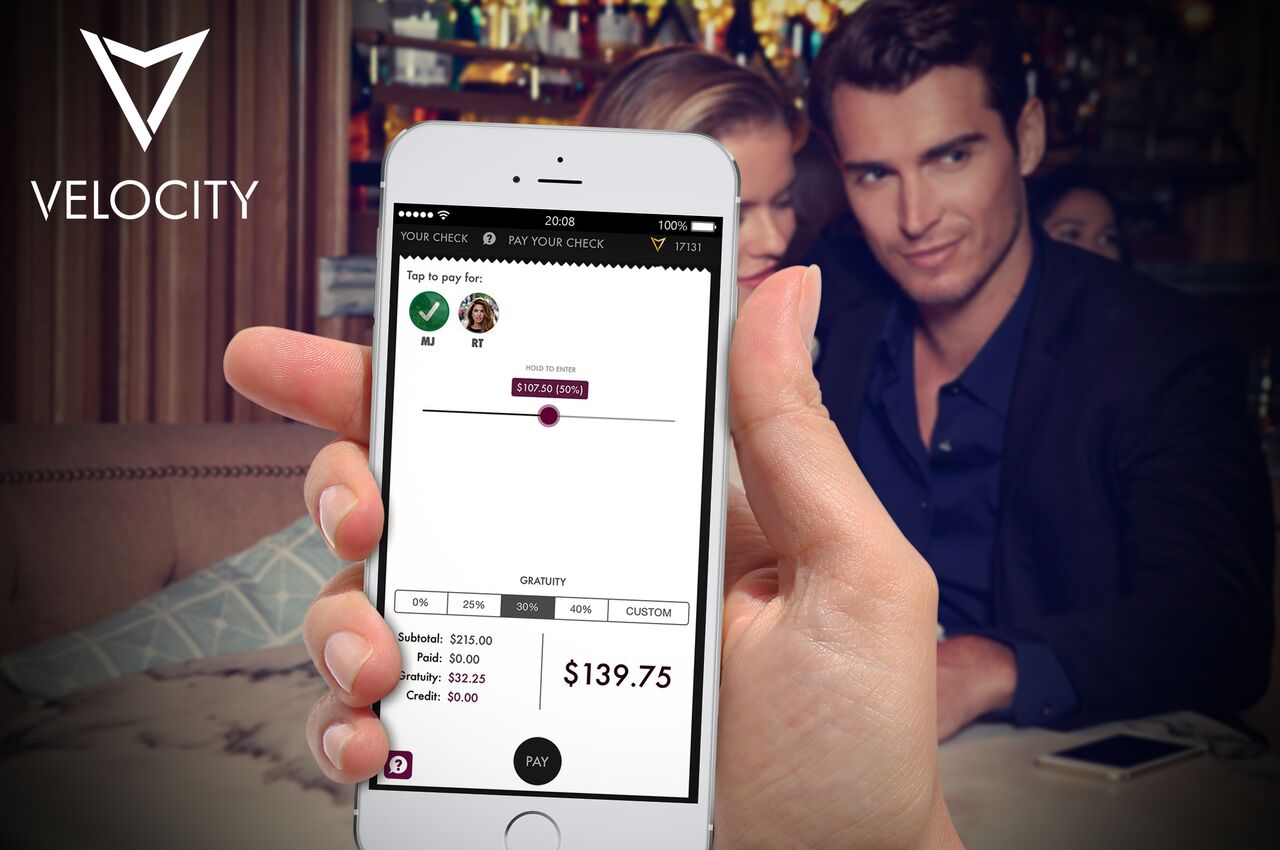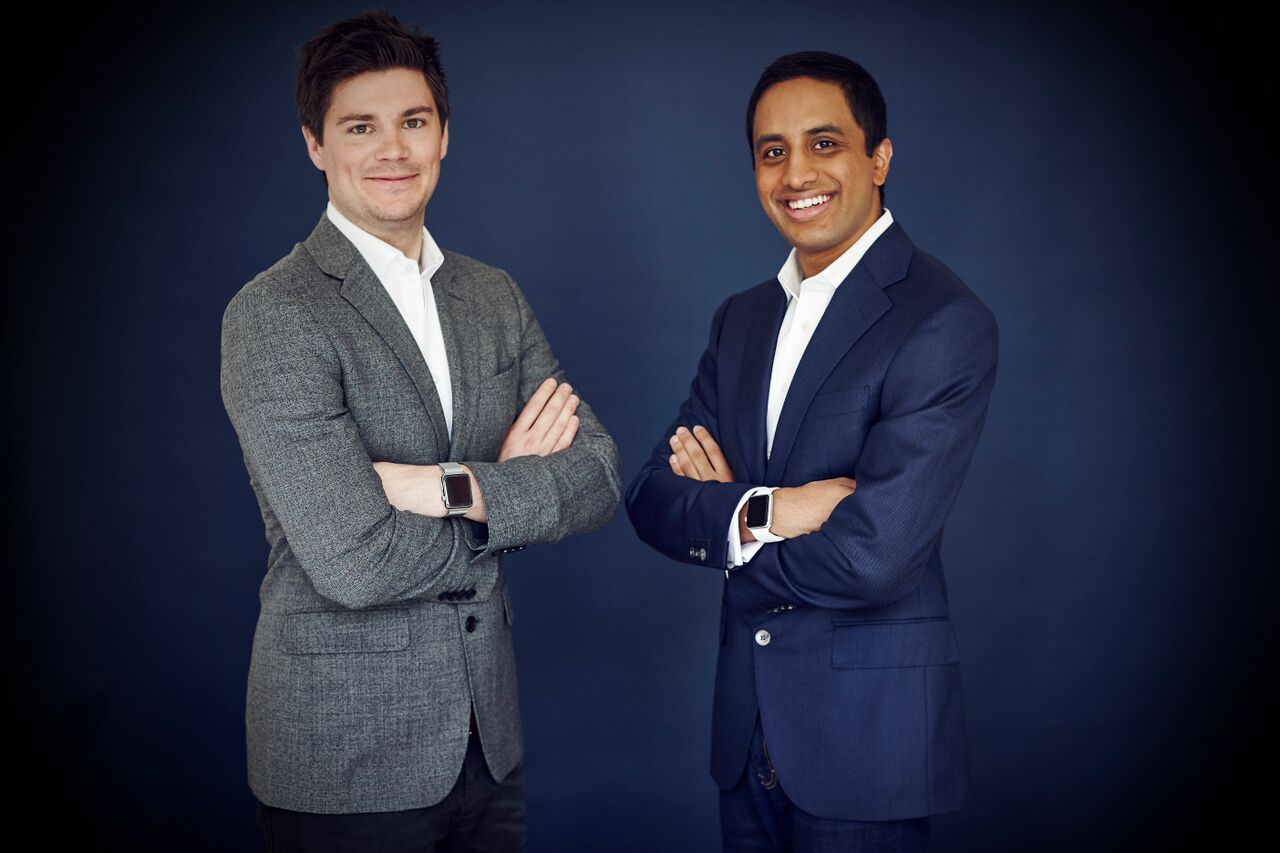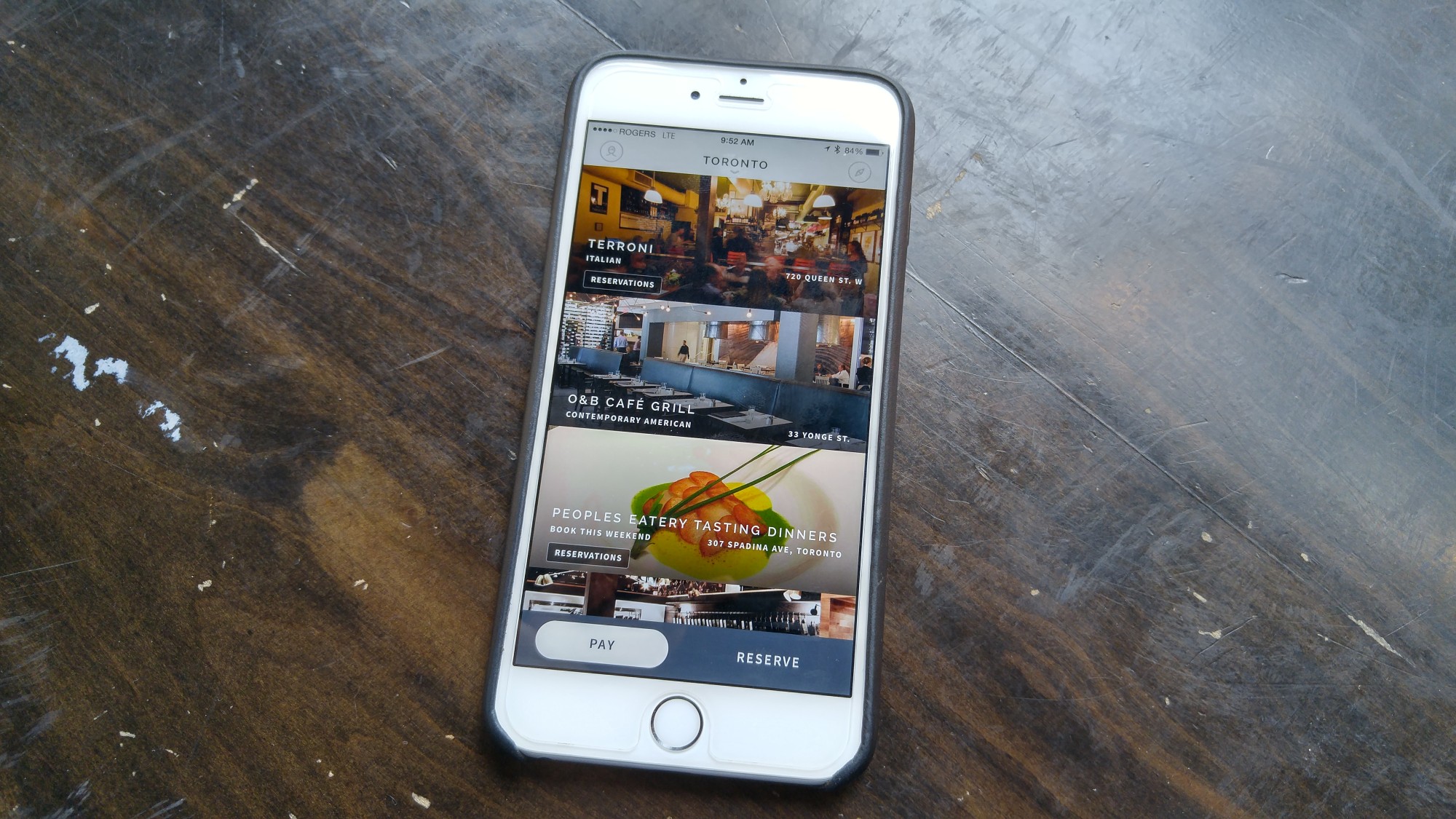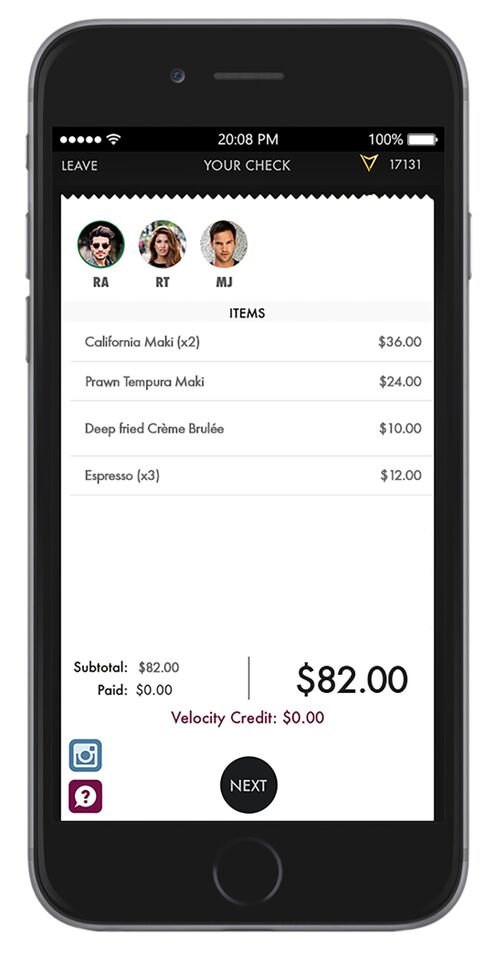
UK-based Velocity announced today that it has acquired Tab Payments, a Toronto-based startup enabling mobile payments within fine dining restaurants across Toronto and Montreal, for an undisclosed amount.
The announcements comes just three weeks after Velocity purchased a similar company, New York-based Cover, to enter the US market. Both Tab and Cover allow customers to check into restaurants and, once seated, pay for their meals without ever seeing a paper bill. For Tab’s part, which we’ve covered a number of times before, the 18 month journey to becoming a full-service platform for both diners and the restaurants they frequent began as a way to solve the pain point of groups using multiple credit cards to pay for meals.
Since its early 2014 launch, the app came to Android, launched a discovery portal for its over 100 restaurants, and expanded to Montreal. Most recently, Tab began taking orders over SMS, a nostalgic acknowledgement of how text messages have retained their importance in the data age.
Velocity’s acquisition of Tab gives the company immediate market share in Canada, and allows Tab’s current and future docket of restaurants a more robust infrastructure for reservations, payments and loyalty. Velocity is one of the UK’s largest full-service mobile dining platforms, according to the company, raising $16 million for its Series A round back in September.
“We’re a hospitality company first and a technology company second.”
But whereas Velocity values the mobile payment aspect of its business, it wants Tab, whose brand will remain until sometime in 2016, to become a single app Canadian customers go to improve the going-out experience.
“We’re a hospitality company first and a technology company second,” says Zia Yusuf, Velocity’s co-Founder and co-CEO. “Because our customers spend 14 percent more [at each venue] than the average customer, our partners are able to give these people an advantage.” It’s this business model, which Yusuf refers to as ‘Attract, Delight, Retain’, as the key to Velocity’s value proposition.
“The core of our service offering to the consumer is not just paying your cheque without waiting — that’s attractive but not the be-all and end-all of our product — but saying to the best customers in the hospitality industry, ‘If you use our platform, you’ll have status on our platform, and the hospitality industry will identify you as a great customer,'” continues Yusuf.

The company, which now has 500 venues in its three markets, uses loyalty to keep customers returning to its partner restaurants. Velocity offers a single over-arching loyalty program, with points that accrue and can be redeemed at any of its so-called hospitality partners, but individual restaurants can, using Velocity’s tools, build out their own loyalty services within the app, if desired.
Yusuf stresses that Velocity’s business model, which comprises taking a small slice of the payment revenue along with sharing voluntary user data with partner venues, is built to scale, and that Tab will help its brand gain much-needed traction in Canada.
Tab’s co-founder, Adam Epstein, will continue as Velocity’s head of Canadian operations, while co-founder Mike Kimel joins Velocity’s advisory board as he continues his work as head of Chase Restaurant Group.
“We’re committed to building an international hospitality platform,” said Alex Macdonald, Velocity’s other co-Founder and co-CEO, in a statement to BetaKit. “With the acquisition of Tab, we strengthen our global leadership position with reservations technology and 100 premier restaurants in Canada.”
Yusuf stresses that the company has no plans to develop its own point-of-sale system, choosing to integrate into existing systems already in place in Canada’s best restaurants. “Our products have been built to fit with the way restaurants and night clubs already work,” he says, noting that Velocity would rather be a SaaS company that fills in the missing pieces of the hospitality industry.
Yusuf emphasizes something Epstein told me in every conversation we’d had about Tab: that the restaurant and entertainment industries are ripe for disruption, but that every small startup was trying to solve only a sliver of the entire problem. Tab was beginning to take on an increasing number of those responsibilities, from payments to reservation to discovery, which was a major deciding factor for Yusuf’s and Macdonald’s decision to purchase the company.
“Adam was a key reason for doing this deal,” Yusuf tells me. “He brings a key amount of expertise in the Canadian hospitality market,” something that takes an extraordinary amount of time and patience to accomplish.
MobileSyrup may earn a commission from purchases made via our links, which helps fund the journalism we provide free on our website. These links do not influence our editorial content. Support us here.




